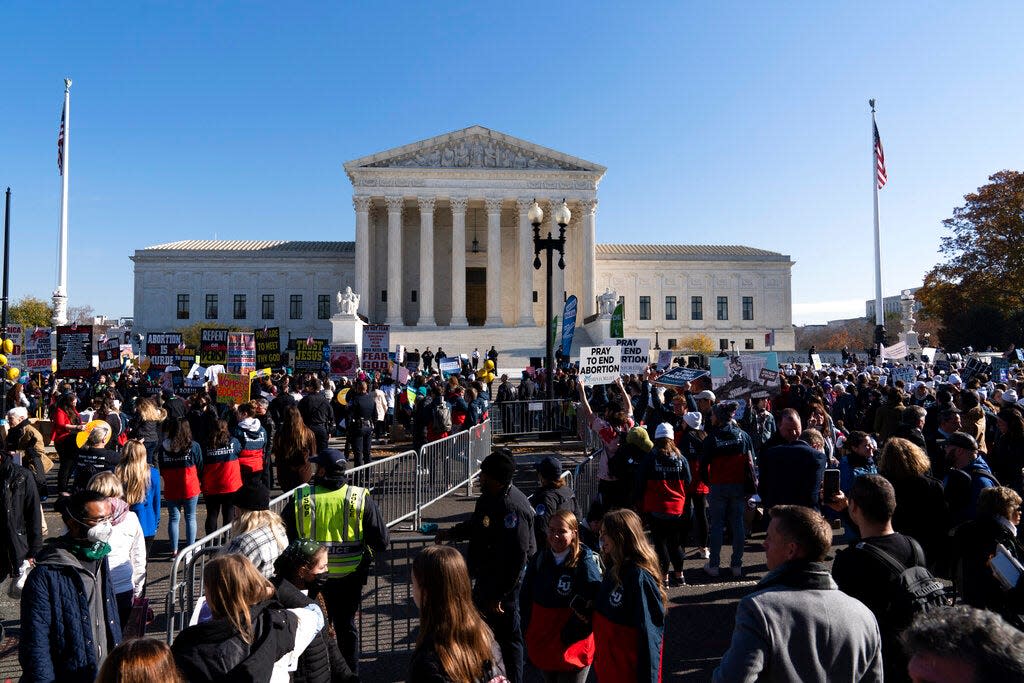Viewpoint: More respectful consideration from highest court on abortion

As many know, Politico recently published the leaked first draft of a Supreme Court opinion on a significant Mississippi abortion case titled Dobbs v. Jackson Women’s Health Organization. The draft was written by Justice Samuel Alito after the justices held the case hearing in December 2021. It expresses strong support for undoing Roe v. Wade and Planned Parenthood v. Casey, two cases whose decisions have stood as settled law for many years, and which provide some protection for abortion access in the United States. The final decision is expected by the end of June or before.
The Chief Justice of the court said it was a legitimate draft but stated "it does not represent a decision by the court or the final position of any member on the issues in the case." Hopefully the court will not pass this since the draft indicates that the court majority wants to undo the prior Roe v. Wade and Casey decisions. It contains many narrow-minded arguments and some very bizarre and insensitive comments.
For example, it charges Roe with causing inflammation on the national level and, quoting a former Justice opinion, says the Supreme Court must influence public opinion by “the strength of its opinions” not by the “exercise of raw judicial power.” It is very clear that ending Roe will end neither national nor state “inflammation” and that this draft decision irresponsibly reflects “raw judicial power.” Already the outrage is being expressed in social media, in rallies and in appeals to legislators and to the president.
Choosing selective history according to Justice Alito’s desired outcome for precedent, the leaked draft states that abortion had been outlawed in the U.S. for many years. However, this includes hundreds of years when women did not have the right to vote or to serve in office but for whom abortion was very common despite being illegal. The justices need to respect that history too.
It also claims that “The Court short-circuited the democratic process by closing it to the large number of Americans who dissented in any respect from Roe.” Of course, dissenters do have options. If they oppose abortion they can choose to continue a pregnancy. Men can avoid causing a pregnancy unless willing to support the pregnant person and baby as long as needed and then only have sex with consent from their sexual partner.
Insensitive reasons cited to outlaw abortion include a need for babies for adoption and the claims of increased community support for pregnancy needs through health insurance and parental leave. The former expectation is totally outrageous. On the latter, stats show that adequate community support does not exist for significant numbers of people, including in Indiana, Mississippi and other states that are passing restrictive abortion laws.
For now, abortion is still legal for women age 18 and older. For women younger than 18, it is legal with multiple restrictions. In South Bend abortion is only available up to 10 weeks past the last menstrual period at the Whole Woman’s Health Center on Lincoln Way West. A person can obtain later abortions in Indiana in Lafayette, Merrillville, Indianapolis and Bloomington and out of state in some instances. But, if the Roe support is undone, the Republican supermajority in the Indiana legislature plan to totally outlaw abortion in Indiana and are pressing Gov. Eric Holcomb to call a special session this summer to do just that.
This is a tough issue and people may well have good reason for taking one side or the other. Do the rights of the egg, sperm, blastocyst, embryo or fetus outweigh the rights of women to make decisions about their own bodies and health? Are embryos and fetuses to be valued more than the person who is providing the means of development? Should we say that “all human life should be protected” or is the question one of “when should human life be protected”? Must this be a fixed decision for everyone?
Currently, the majority of people support abortion, especially in the first half of pregnancy, according to a recent Pew Research poll. Our gerrymandered state legislatures do not always reflect or respect that diversity of opinion. There is also a diversity of deeply considered teachings on abortion and family planning with different conclusions.
Finally, there are the personal and striking stories of many who have made thoughtful decisions about abortion. They, whose lives are changed, whether blessed, threatened, or deeply complicated by a pregnancy, deserve a more respectful consideration and support from the Supreme Court.
Dr. Ellyn Stecker is a retired family medicine physician.
This article originally appeared on South Bend Tribune: Hopefully, the Supreme Court won't pass draft that would undo Roe v. Wade.

